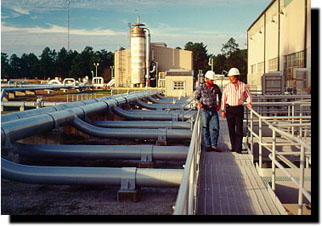
TURKMEN GAS PRICE HIKE: IMPLICATIONS FOR RUSSIA AND EUROPE
Publication: Eurasia Daily Monitor Volume: 3 Issue: 122
By:

On June 21, the government of Turkmenistan announced that it proposes to steeply raise the price of gas it sells to Gazprom: from $65 per 1,000 cubic meters at present to $100 in the second half of 2006. The volume of deliveries would remain constant at 30 billion cubic meters. Turkmenistan is giving Russia six weeks to sign a sale-purchase contract for the remainder of 2006 at the Turkmen-proposed price. Failing that, “Turkmenistan will stop the supplies,” according to Oil and Gas Industry and Mineral Resources Minister, Gurbanmyrat Atayev, quoted by the Turkmen Ministry of Foreign Affairs communiqué. Atayev confirmed the six-week deadline and stoppage threat in a meeting with a European Parliament delegation the same day in Ashgabat.
President Saparmurat Niyazov first proposed the $100 price to the visiting Gazprom chairman Alexei Miller in Ashgabat on June 19. Miller countered by proposing to retain the existing price until the end of the year at least. His apparent refusal to bargain must have offended the Turkmen side, provoking its stark public warning to Gazprom. Meanwhile, Gazprom sells Russian gas in Europe — including small but growing volumes of Turkmen gas billed as “Russian” — at an average price of $230 per 1,000 cubic meters.
The bilateral contract, signed last December, sets the $65 price for January-June 2006 and allows renegotiation of the price as part of a new contract for the second half of the year. Meanwhile, Turkmen deliveries to Gazprom in January-June ran behind schedule and can only be completed by late August, according to the Turkmen side, or even stretch into October, according to Gazprom in its damage-limitation scramble. The delayed deliveries will carry the old price, while the new price would apply to deliveries under a July-December contract.
Within Russia, Gazprom is reassuring consumers that the Turkmen price hike will not affect them, inasmuch as that gas is mainly intended for re-export, with Ukraine the primary destination. While correct as far as they go, such reassurances pass over in silence the major role of Turkmen gas in Russia’s external economic, geopolitical, and financial agendas in the years ahead. Those agendas presuppose continuing extortion of Turkmenistan by Russia, buying Turkmen gas at far less than international market prices.
Under a 25-year, non-binding framework agreement, Gazprom has sought a permanent monopoly on Turkmenistan’s gas exports. Controlling the sole major export pipeline out of Turkmenistan, Moscow apparently expects to maintain its transit monopoly and price-scissors for decades to come. From 2008 on, Russia plans to import vast quantities of low-priced Turkmen gas, use it for Russia’s internal needs, and release equivalent amounts of Russian gas for high-priced exports to the European Union. Thus, Moscow would amass windfall profits as well as using its control of Central Asian gas as a geopolitical tool in Europe. With market dominance in Europe, a monopsony in Turkmenistan, and ownership of the “single export channel” from Central Asia to Europe, Moscow would practically dictate prices at both ends, at the expense of both Europe and Turkmenistan.
However, Ashgabat’s abrupt price hike and cutoff threat adds to recent indications of its discontent with dependence on Russia and interest in developing alternative export outlets. Moscow’s strategic agendas will be in jeopardy if Turkmenistan persists with raising the price of its gas to Russia in line with international market conditions. If gas-consuming countries become involved in opening direct export routes for Turkmen gas to international markets, bypassing Russia, a major dimension of Europe’s energy predicament could find its solution. Whether the European Union and the most responsible energy corporations (with Germany as a counterexample) are capable of promptly seizing the opportunity now suddenly opening in Turkmenistan is a question of a different order. For its part, Washington can now take the lead in reactivating the trans-Caspian pipeline project for Turkmen gas, originally a U.S. initiative that needs adjustment to the new conditions and close coordination with the EU.
(Interfax, June 20-22; Turkmen State News Service, Turkmen Television Channel One, June 19-21)




